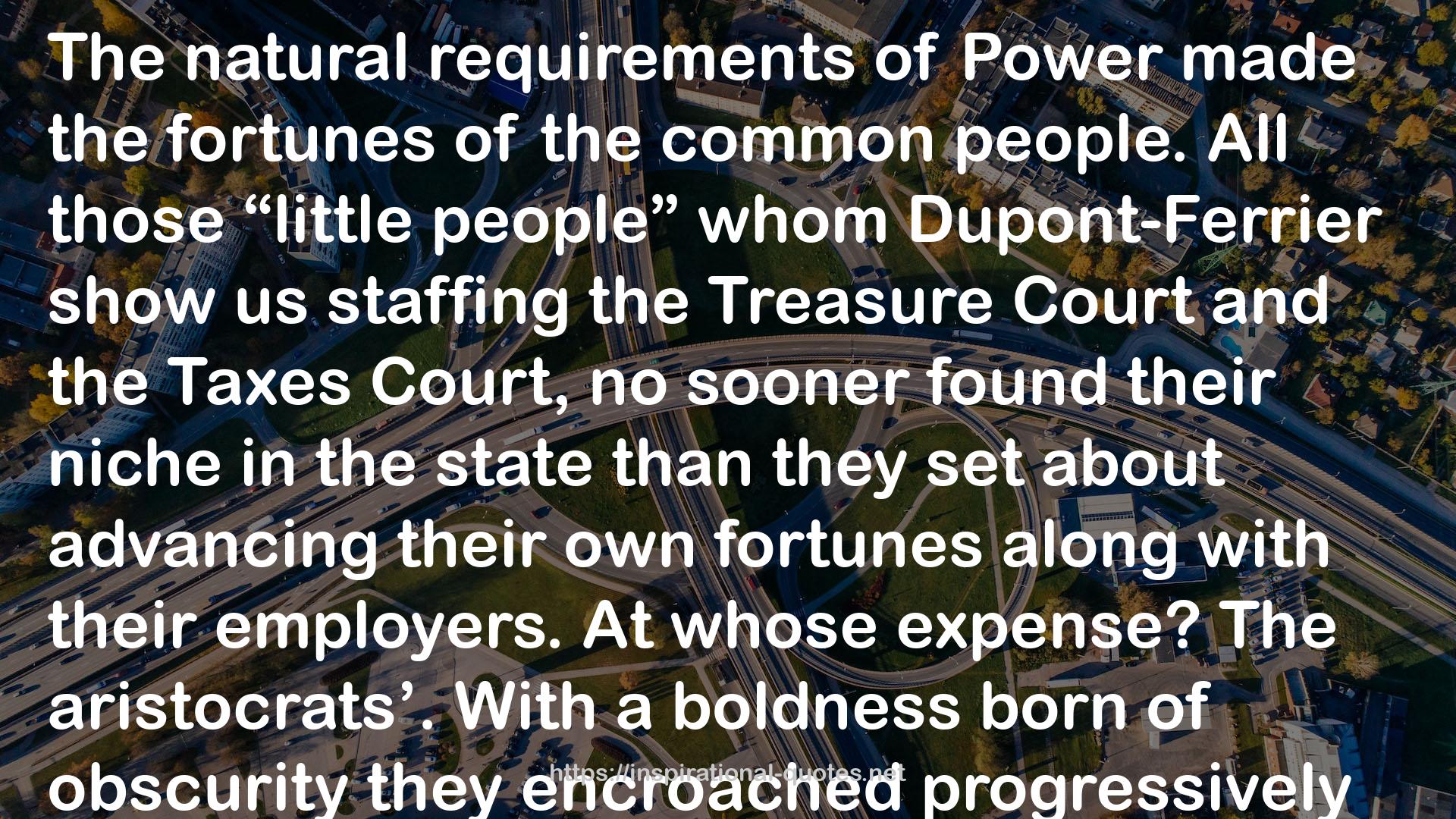" The natural requirements of Power made the fortunes of the common people. All those “little people” whom Dupont-Ferrier show us staffing the Treasure Court and the Taxes Court, no sooner found their niche in the state than they set about advancing their own fortunes along with their employers. At whose expense? The aristocrats’. With a boldness born of obscurity they encroached progressively on the taxing rights of the barons and transferred to the royal treasury the incomes of the great. As their invasions grew, the financial machine grew larger and more complicated. There might be new posts for their relations, they discovered new duties, so that whole families take their ease in a bureacracy that grew continually in numbers and authority. Spawning a whole hierarchy of underlings – deputies, clerks, registrars. So it was that everywhere the service of the state became the road to distinction, advancement, and authority of the common people. What a sight it is, the rise of the clerks, this swarming of busy bees who gradually devour the feudal splendour and leave it with nothing but its pomp and titles! Does it not leap to the eye that the state has made the fortunes of all these common peole, just as they have made the state’s. "
― Bertrand De Jouvenel , On Power: The Natural History of Its Growth
